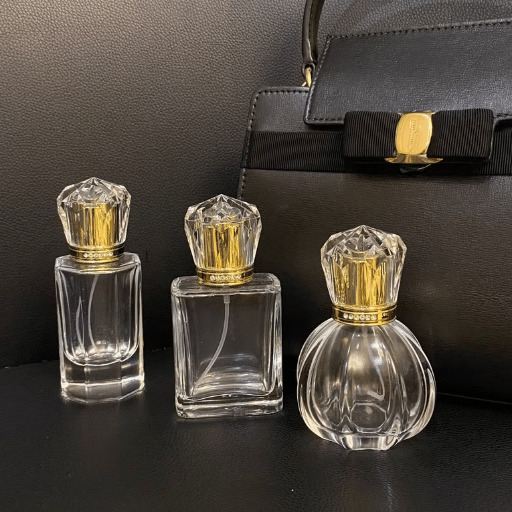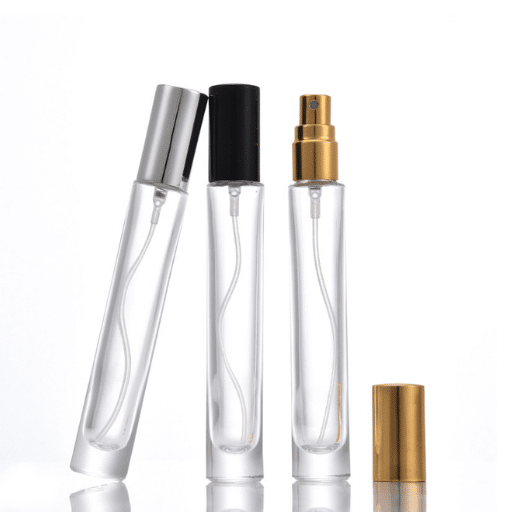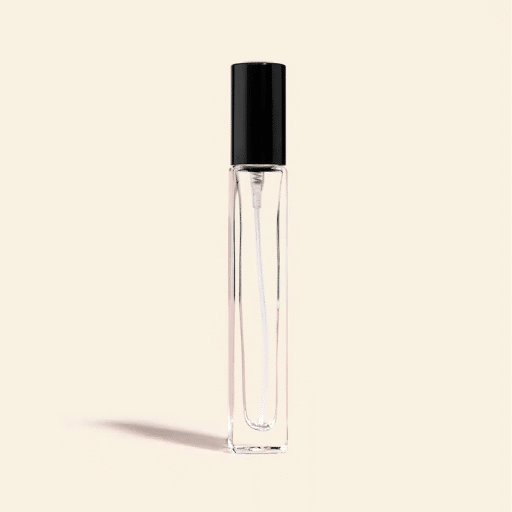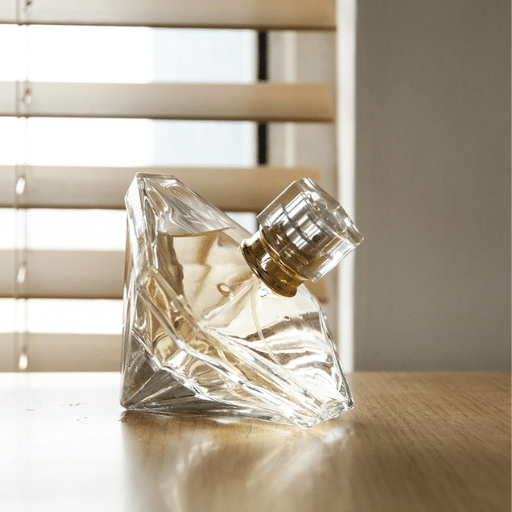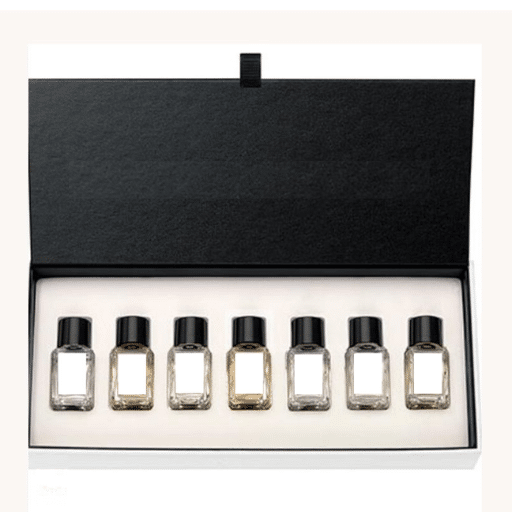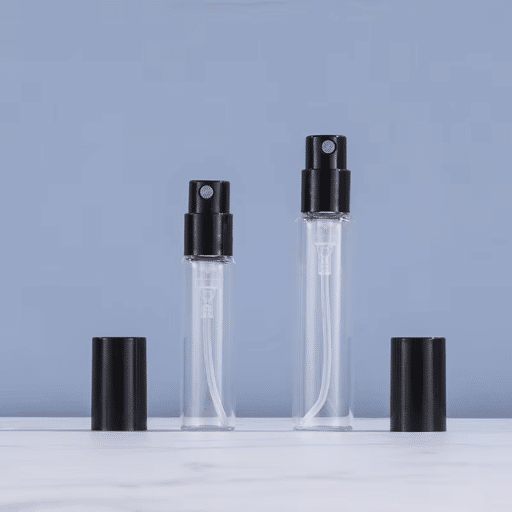Perfume bottles are more than just containers; they are a crucial element in the fragrance industry, blending functionality with aesthetics. For businesses in the beauty and personal care sector, sourcing high-quality wholesale perfume bottles is a strategic move that not only enhances brand presentation but also impacts consumer experience. This comprehensive guide will unravel the essentials of wholesale perfume bottles, covering everything from design trends and materials to cost-effective sourcing strategies. Whether you’re a brand owner, a distributor, or a budding entrepreneur, this article will equip you with the knowledge needed to make informed decisions, ensuring your product offerings stand out in a competitive market. Prepare to explore the intersection of creativity, practicality, and market dynamics in the world of wholesale perfume bottles.
What Makes a Perfume Bottle Unique?
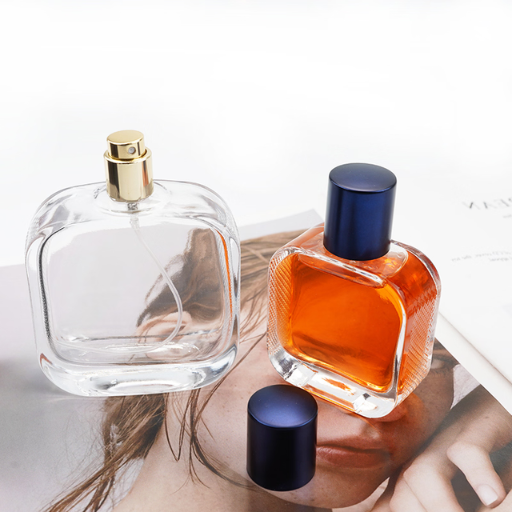
A perfume bottle is unique due to its combination of functionality, aesthetic appeal, and brand identity. Its primary purpose is to protect the fragrance from external factors such as light, heat, and air, ensuring the scent remains intact over time. Additionally, the design of the bottle plays a significant role in conveying the brand’s image and attracting consumer interest. Materials like glass or metal are common due to their durability and ability to maintain the perfume’s quality. Lastly, intricate shapes, decorative elements, and unique dispensing mechanisms further enhance the distinctiveness of a perfume bottle, making it a key aspect of the product’s overall presentation.
Understanding Different Perfume Bottle Designs
Factors Influencing Perfume Bottle Design
Perfume bottle design is influenced by a blend of functionality, aesthetics, and brand identity. Commonly, designers prioritize materials such as glass for its ability to preserve the fragrance and showcase the liquid’s color. Shapes and forms range from minimalist, clean lines to elaborate, artistic structures, aiming to evoke elegance or uniqueness. Decorative components, like engravings or embellishments, are strategically included to enhance visual appeal and communicate luxury.
Dispensing mechanisms, such as sprays or droppers, are selected based on the intended user experience while ensuring the fragrance is adequately protected. Beyond practicality, bottle designs are deeply intertwined with brand messaging, whether to signify timeless sophistication or modern innovation. Current trends indicate a growing emphasis on sustainable materials as brands align with environmentally conscious consumer values. Ultimately, every detail of the design works harmoniously to create both a functional item and a lasting impression on the consumer.
Importance of Perfume Bottle Material
The material of a perfume bottle is critical to both the preservation of the fragrance and the overall user experience. Glass is often the preferred material due to its non-reactive nature and excellent barrier properties, effectively protecting the perfume from external contaminants and UV exposure. High-quality glass with ultraviolet (UV) coatings further enhances light protection, ensuring the integrity of the fragrance, particularly for light-sensitive formulations.
Alternatively, certain plastics and metals are also employed when appropriate. Plastics, typically polyethylene terephthalate (PET), are used for their lightweight properties and cost efficiency, though attention must be given to their chemical compatibility with perfume ingredients to avoid leaching or degradation. Metals such as aluminum can provide additional durability and block out light entirely while offering opportunities for innovative, sleek designs.
Key technical parameters to consider when selecting bottle materials include:
- Chemical Compatibility – Ensure the material does not react with alcohol or essential oils commonly found in the perfume base.
- Barrier Properties – Evaluate the material’s ability to resist permeation of oxygen and moisture, which can compromise fragrance stability.
- UV Protection – Select materials or coatings capable of filtering UV light within the range of 200-400 nm.
- Durability – Assess material resistance to drops, temperature variations, and general wear, particularly for travel-friendly designs.
- Sustainability – Include recyclable or biodegradable materials to meet growing environmental demands without compromising performance.
Employing these parameters not only ensures the longevity and quality of the perfume but also aligns with functional, aesthetic, and environmental goals integral to modern product design.
Trends in Perfume Bottle Aesthetics
Modern trends in perfume bottle aesthetics focus on combining innovation with timeless appeal, catering to both consumer preferences and brand identity. Key developments include:
- Minimalist Designs – Clean lines, monochromatic tones, and understated finishes are increasingly popular, offering a sophisticated, clutter-free look that appeals to modern sensibilities.
- Luxury Material Integration – High-quality materials like crystal, hand-blown glass, and metal accents are frequently utilized to convey exclusivity. These convey tactile and visual elegance, adding perceived value to the product.
- Sustainability-Driven Aesthetics – Recycled glass, refillable containers, and modular designs are becoming the standard as brands respond to environmentally conscious consumers, blending eco-friendly solutions with premium design.
- Personalization and Customization – Brands now offer customization options, such as engraved bottles or personalized color schemes, to create a unique, intimate connection with the consumer.
- Innovative Shapes – Unconventional silhouettes, inspired by nature, architecture, or abstract art, challenge traditional formats and capture consumer attention by emphasizing bold individuality.
By integrating these trends, perfume bottles are becoming more than containers; they are evolving into artistic expressions and strategic tools for brand differentiation in an increasingly competitive market.
How to Choose a Reliable Perfume Bottle Supplier?
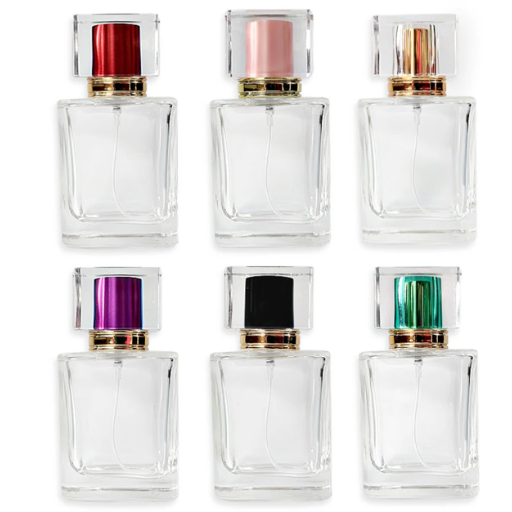
While looking for a dependable supplier for perfume bottles, pay attention to the following details:
- Quality Standards – Evaluate the supplier’s proficiency in maintaining standards of manufacturing in regard to material strength, construction and selction of parts, proper assemblies to control movement done with the approriate tools and techniques, and general compliance within the domain.
- Customization Options – Ensure your requirements and those of your brand concerning design modifications and custom features are fulfilled by the supplier.
- Production Capacity – Verify the supplier’s production capabilities in regards to meeting your demand whether in bulk or at lower quantities for various order sizes.
- Dependability – Assess the supplier’s reputation and history concerning the adherence to schedules and timelines, product maintenance of consistent quality for repeating orders, and fulfilling expectations over time.
- Budget – Focus on the supplier’s price range against the perceived value of quality, service guarantees provided within your budget.
- Eco-Friendly- Focus on suppliers who utilize methods and materials that shield the environment without causing harm to modern day consumers.
Following these factors will greatly help provide a beneficial to your requirements and expectations concerning your preferred supplier.
Key Qualities of a Good Perfume Bottle Supplier
- Material Quality and Durability
A reputable perfume bottle supplier must prioritize the use of high-quality materials, such as glass or advanced-grade plastics, ensuring durability and product safety. Consider specifications such as glass thickness (e.g., 3-5 mm for standard durability) and chemical resistance to prevent reactions between the perfume and the container.
- Design Versatility and Aesthetic Appeal
Ensure the supplier provides a range of customizable options that accommodate your brand’s image, including bottle shapes, sizes, and decorative finishes like frosting, engraving, or UV coating. The supplier should also support detailed technical drawings and prototyping to validate design accuracy.
- Precision Manufacturing Standards
The supplier should adhere to precise manufacturing tolerances to produce bottles with uniform dimensions, ensuring compatibility with closures and pumps. For example, the neck diameter should match industry standards like DIN or GCM, ensuring functional and aesthetic integrity.
- Quality Assurance and Certifications
Suppliers should operate under stringent quality control systems, such as ISO 9001 certifications, which reflect their commitment to consistent production quality. Inspections for defects, such as air bubbles in glass or uneven decorative coatings, are crucial.
- Environmental Compliance and Sustainability
Evaluate the supplier’s adherence to eco-friendly practices, such as using recycled materials or adopting energy-efficient production methods. Opt for suppliers who comply with certifications like RoHS (Restriction of Hazardous Substances) or other environmental standards.
- Reliable Supply Chain and Scalability
Assess the supplier’s capacity to meet your demand requirements, including lead times and flexibility for scale adjustments. The supplier’s logistics framework must support safe and timely delivery, with transparency in shipping conditions to prevent damages during transit.
By emphasizing these qualities and verifying the technical details, you can confidently select a perfume bottle supplier capable of supporting both your product needs and your brand standards.
Evaluating Perfume Bottle Supplier Reputation
When evaluating a perfume bottle supplier’s reputation, I focus on several key factors. First, I thoroughly research customer reviews and ratings across reliable platforms to gauge satisfaction levels and identify any recurring issues. Additionally, I verify the supplier’s industry certifications and affiliations, as these often reflect their commitment to quality and standards. I also assess their experience in the market, prioritizing suppliers with a proven track record in delivering high-quality products consistently. Finally, I seek testimonials or case studies that demonstrate their ability to meet client demands, particularly for brands similar to mine in size and scope. This systematic approach helps ensure I partner with a reputable and dependable supplier.
Essential Questions to Ask Your Supplier
- What is your production capacity, and can it scale to meet fluctuations in demand?
Understanding a supplier’s production capacity ensures they can accommodate your business growth or seasonal demand changes. Verify their ability to scale quickly without compromising quality.
- What are your quality control processes?
Ask for detailed information on how they ensure consistent product quality, including any certification standards they adhere to, inspections, or audits performed during production.
- What are your lead times, and how do you handle delays?
Reliable suppliers should provide clear expectations on lead times and have a contingency plan in place to address potential disruptions in the supply chain.
- Can you share references or case studies from similar brands?
References and case studies provide firsthand insights into how effectively the supplier delivers on promises and handles challenges. Look for examples involving businesses of similar size and scope to yours.
- What are the minimum order quantities and payment terms?
Ensure the pricing, payments, and minimum order amounts are in line with your revenue and stock expectations.
- What steps do you take to guarantee ethical sourcing, sustainability, and environmental protection?
Verifying less harmful practices affects purchase decisions more and more. Check that legal standards on labor, the environment, and the use of eco-friendly materials and practices are being followed.
- What is your process for managing returns and/or items that may be defective?
Having a well-defined process for returns and guarantees shows commitment to dealing with issues in a swift manner and demonstrates confidence in the product being offered.
Mitigating risks and building dependable partnerships becomes effortless by asking these crucial questions and evaluating answers systematically to ensure seamless supply chain operations.
Why Opt for Glass Perfume Bottles in Wholesale?
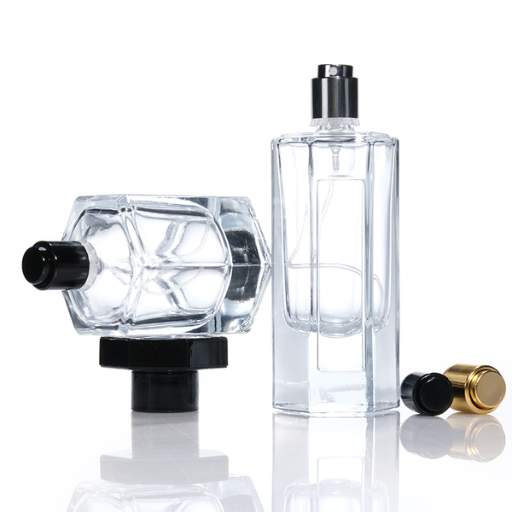
Glass perfume bottles offer several advantages when purchased wholesale, making them a highly viable option for businesses in the fragrance industry. Glass is an inert material that does not interact with perfume formulations, preserving the integrity and quality of the scent over time. This characteristic ensures the longevity of the product, reducing the risk of chemical alterations. Furthermore, glass bottles provide a sophisticated and premium aesthetic, which enhances brand perception and attracts a discerning customer base. Wholesale purchases of glass perfume bottles allow businesses to benefit from economies of scale, reducing per-unit costs and improving profitability. Additionally, glass is recyclable, aligning with sustainable practices and meeting the growing demand for eco-friendly packaging solutions. These factors collectively make glass perfume bottles an optimal choice for wholesale procurement.
Benefits of Glass Perfume Bottles
- Durability: Glass perfume bottles are highly durable, offering resistance to chemical interactions and preserving the integrity of the fragrance over time.
- Aesthetic Appeal: Their clear, glossy appearance enhances the luxury and sophistication of the product, aligning with premium branding.
- Eco-Friendliness: Glass is fully recyclable, making it an environmentally sustainable option for packaging.
- Non-Permeability: Unlike plastic, glass does not allow any seepage of air or contaminants, ensuring the fragrance’s quality remains unaffected.
- Customization Options: Glass bottles can be molded into various shapes, sizes, and designs, providing flexibility for unique and branded packaging solutions.
- Heat Resistance: Glass is heat-resistant, further protecting the fragrance from temperature-induced alterations.
- Premium Perception: Glass enhances the perceived value of the product, appealing to customers seeking high-quality and luxurious items.
Environmental Impact of Glass Bottles
Glass bottles have both positive and negative environmental impacts that merit consideration. On one hand, glass is 100% recyclable and can be endlessly reused without degradation in quality, reducing the need for raw materials such as sand and limestone. This closed-loop recycling is highly energy-efficient when properly implemented. However, the production and transportation of glass bottles are energy-intensive, emitting significant amounts of CO2 due to the high temperatures required during manufacturing and their relatively heavy weight compared to other materials like plastic or aluminum. Additionally, while recycling rates for glass are improving in many areas, improper disposal can result in waste accumulation, as glass takes thousands of years to break down in landfills. Striking a balance between maximizing recycling efforts and utilizing sustainable manufacturing processes is critical to mitigating the environmental footprint of glass bottles.
Cost-Effectiveness of Wholesale Glass Perfume Bottles
When evaluating the cost-effectiveness of wholesale glass perfume bottles, I consider several key factors. First, glass is a durable material that maintains product integrity, which can justify its initial higher cost compared to alternatives like plastic. However, purchasing in bulk significantly reduces the per-unit expense, making wholesale options attractive for businesses targeting high-quality markets. Additionally, glass bottles are often perceived as premium packaging, enhancing a brand’s image and potentially justifying higher retail prices. While transportation costs can be elevated due to the weight of glass, ensuring efficient logistics and closer supplier networks mitigates this issue. Finally, sourcing from manufacturers who use recycled glass or eco-friendly production methods not only reduces environmental impact but may also qualify for cost-saving incentives or align with sustainability-driven market demands.
What Are the Latest Innovations in Perfume Packaging?
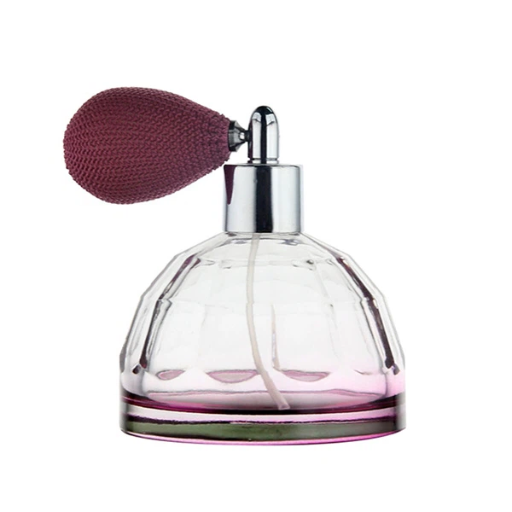
Recent advancements in perfume packaging focus on sustainability, functionality, and aesthetic appeal. Brands are increasingly adopting refillable bottle systems, which reduce waste and allow consumers to reuse high-quality packaging. Additionally, biodegradable materials, such as plant-based plastics and paperboard, are being integrated into designs to minimize environmental impact. Smart packaging is another emerging trend, incorporating QR codes or NFC technology to provide consumers with product details, authenticity verification, or interactive content. Furthermore, minimalist design aesthetics paired with innovative shapes and materials, such as sculptural glass or sustainable metals, are gaining popularity for delivering a premium yet environmentally-conscious experience. These innovations highlight the industry’s shift towards ethical practices and enhanced consumer engagement.
Exploring Custom Glass Options
Custom glass solutions offer unparalleled versatility in design, functionality, and efficiency, making them suitable for a variety of industries and applications. Common options include tempered glass, which provides enhanced strength and safety; laminated glass, known for its durability and soundproofing qualities; and low-emissivity (Low-E) glass, which improves energy efficiency by reducing heat transfer. Additionally, frosted or etched glass is often utilized for aesthetic or privacy purposes, while insulated glass units (IGUs) combine multiple panes to enhance thermal performance.
When selecting custom glass, critical factors such as thickness, coating types, edge finishes, and compatibility with architectural or product requirements should be carefully evaluated. Advances in manufacturing now allow for precision customization, such as digitally printed patterns or integrated smart functionalities like electrochromic (smart-dimming) capabilities. Working with experienced suppliers or manufacturers ensures high-quality materials, adherence to regulatory standards, and tailored solutions that meet both functional needs and design intent.
Advancements in Perfume Spray Technology
- Micro-atomization Technology: Enables a finer mist distribution, ensuring even application and minimal wastage of the fragrance. This technology enhances the user’s sensory experience while increasing the longevity of the scent.
- Eco-conscious Spray Mechanisms: Development of non-aerosol, environmentally friendly dispensing systems that reduce harmful emissions typically associated with traditional sprays.
- Adjustable Output Nozzles: Allows users to control the amount of fragrance dispensed per spray, offering customization and reducing overuse.
- Pressure-Controlled Systems: Ensures consistent spray quality by maintaining uniform pressure, which is critical for achieving optimal mist delivery.
- Integrated Smart Sensors: Some modern designs incorporate sensors that adjust spray patterns based on environmental conditions, such as humidity or temperature, optimizing the performance of the fragrance.
- Compact and Portable Designs: Innovations in miniaturization have enabled sleek, travel-friendly bottles with advanced spray systems that maintain efficacy and ease of use.
- Sustainable Materials: Adoption of recyclable or biodegradable materials in spray mechanisms to align with the growing emphasis on sustainability within the cosmetics industry.
- Anti-clogging Nozzle Innovations: Improvements in nozzle design and materials to prevent clogging, ensuring consistent performance and longevity of the packaging.
Integration of Refillable Glass Bottles
Refillable glass bottles present a sustainable and premium packaging solution that aligns with consumer demand for eco-friendly practices. By utilizing durable, high-quality glass, these bottles can withstand repeated use and refills without compromising structural integrity or aesthetics. Advanced designs incorporate leak-proof sealing mechanisms and user-friendly refill systems to enhance convenience. Additionally, their recyclable nature contributes to reducing environmental waste while supporting a circular economy. Implementing such solutions not only addresses sustainability goals but also positions brands as forward-thinking and environmentally responsible.
How to Ensure Quality Control in Perfume Bottle Wholesale?
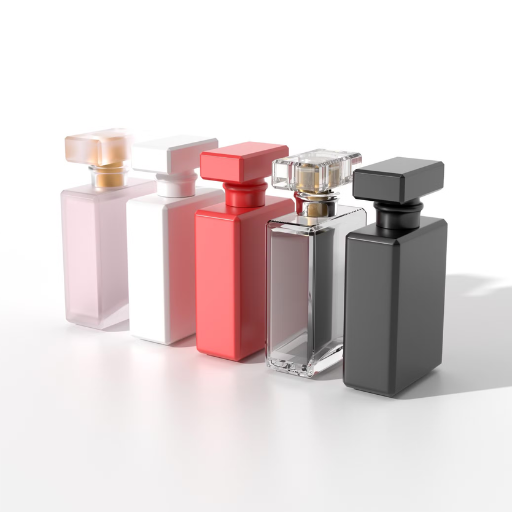
To ensure quality control in perfume bottle wholesale, it is essential to implement a multifaceted approach that addresses both manufacturing standards and supply chain management. First, establish strict quality benchmarks for materials, ensuring they meet durability, safety, and aesthetic criteria. Conduct regular inspections during production to identify and rectify defects early. Second, collaborate with trusted suppliers who maintain ISO-certified processes and reliable quality assurance protocols. Third, test the functionality of the bottles, including their sealing mechanisms and spray performance, to guarantee they meet consumer expectations. Finally, document and evaluate quality metrics consistently to identify areas for improvement and maintain compliance with industry standards.
Key Quality Standards for Perfume Bottle Wholesale
As an industry professional, I can confirm that several key quality standards must be adhered to when engaging in perfume bottle wholesale. Firstly, the bottles should comply with regulatory standards such as FDA or EU packaging guidelines, depending on the target market, to ensure safety and quality. Secondly, the materials used, whether glass or alternative polymers, must meet strict durability and chemical compatibility benchmarks to prevent leaks or reactions with perfume contents. Finally, consistency in design and precision manufacturing, including uniform dimensions and defect-free finishes, is critical to maintaining brand reputation and consumer trust.
Methods for Testing Perfume Bottles
When testing perfume bottles, I focus on several key methods to ensure they meet industry standards. First, I conduct drop tests to evaluate the bottle’s resilience to impact, ensuring it can maintain integrity during transportation and handling. I also perform leak tests, where the filled bottle is subjected to pressure to confirm that the closure system effectively prevents spillage under various conditions. Additionally, I use compatibility testing to check for any adverse chemical reactions between the perfume and the bottle materials, prioritizing both safety and product longevity. Dimensional accuracy is verified using precision measuring tools to ensure consistent manufacturing, and visual inspections are carried out to identify surface defects or abnormalities. These comprehensive tests are integral to maintaining quality and confidence in the packaging.
Partnering with Reputable Perfume Bottle Manufacturers
Selecting a reliable perfume bottle manufacturer requires thorough research and evaluation to ensure superior quality and alignment with your brand’s values. Reputable manufacturers are typically characterized by their expertise in design innovation, precision engineering, and the use of durable, safe materials. They adhere to stringent quality control measures and prioritize sustainability by incorporating eco-friendly production methods.
When partnering with a top-tier manufacturer, ensure their portfolio showcases a range of customizable designs to meet diverse aesthetic and functional requirements. They should provide extensive services, such as prototyping, mold customization, and post-production support, to streamline your product’s market readiness. Additionally, the manufacturer’s supply chain efficiency and adherence to regulatory standards are pivotal for maintaining production timelines and compliance.
By carefully assessing certifications, customer reviews, and case studies, businesses can identify manufacturers with a proven track record of delivering consistent quality. Forming such partnerships fosters product excellence and enhances your brand’s reputation in a competitive market.
Reference Sources
-
Packamor: Offers premium wholesale perfume bottles, including glass, spray, and roll-on options, with custom branding and bulk discounts.
-
Instockpack: Features a variety of quality wholesale glass fragrance bottles in unique shapes and designs.
-
Thomasnet: A directory of manufacturers and suppliers of standard and custom perfume bottles in the USA.
-
Verescence: A leading company specializing in glass bottle production for perfume and cosmetics brands since 1958.
-
Glass Bottle Custom: Provides insights into sourcing wholesale perfume bottles, custom designs, and supplier recommendations.
Frequently Asked Questions (FAQs)
Q: What are wholesale perfume bottles, and why are they popular?
A: Western countries and businesses prefer to purchase perfume containers in bulk for resell or distribution couture. Perfume wholesale stores sell perfume bottles in wholesale. They, of course, use their containers for perfumes previously manufactured either on-site or by third parties. Reserve and bring for sale some used containers or ones that have been used since perfume ad systems. Different brands have selections marked fountain bottles for resells. They purchase wholesale and are more profitable in bulk than retail thus making demand for wholesale fun.
Q: How can I ensure the quality of glass perfume bottles wholesale?
A: To ensure quality, look for trusted perfume bottle suppliers, especially those with a reputation for providing premium perfume glass bottles. Checking customer reviews and requesting samples before purchasing in bulk can also help ensure quality.
Q: What customization options are available for bulk perfume bottles?
A: Customization options for bulk perfume bottles include various shapes, sizes, colors, and finishes, such as gradient or clear glass. You can also choose different types of lids, like sprayers or steel rollers, to fit your specific style bottles and branding needs.
Q: Why choose glass perfume bottles over plastic ones?
A: Glass perfume bottles are often preferred over plastic because they offer a more luxurious feel and are better at preserving the fragrance’s integrity. They are also more environmentally friendly and can be recycled or reused.
Q: What is the importance of fine mist sprayers in perfume bottles?
A: Fine mist sprayers are crucial in perfume bottles as they provide a delicate and even distribution of fragrance, enhancing the user experience. They are particularly important for perfumes and essential oils, ensuring that the scent is applied smoothly and effortlessly.
Q: Can I find trusted suppliers for perfume bottles in China?
A: Yes, China has a large selection of trusted suppliers offering a wide range of perfume bottles, from luxury to everyday use. These suppliers often provide competitive pricing and in-stock options, making them a popular choice for businesses looking to purchase in bulk.
Q: What are the benefits of using roll-on bottles for perfumes?
A: Roll-on bottles are ideal for applying perfumes and essential oils due to their convenience and precision. They help in controlling the amount of perfume applied and are perfect for travel or on-the-go use, reducing the risk of spills or over-application.
Q: How do I choose the right packaging solutions for my perfume line?
A: Choosing the right packaging involves considering your brand’s image, target audience, and the type of fragrance. Opt for packaging that complements your perfume’s style, whether it’s luxury, minimalist, or vibrant. Additionally, ensure the packaging is functional, protecting the fragrance and offering ease of use.

